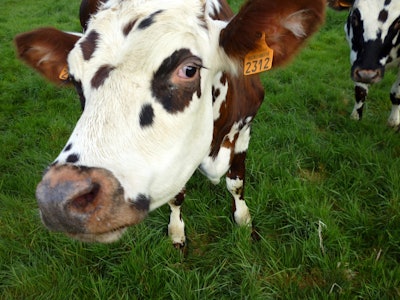A.I. is already well on its way to being the future of food service, but what if it could also do things like prevent foodborne illnesses, such as E. coli?
Researchers at the University of Edinburgh say they’ve designed a software to do just that. The A.I. compares the genetic signatures of E. coli samples that have caused infection in humans to bacterial samples from humans and animals. The technology will allow researchers to identify deadly strains of E. coli before the threat becomes an outbreak.
E. coli made huge headlines in the fall when an outbreak of the bacteria spread to over 43 Chipotle chains and sickened over 60 customers, prompting the CDC to call for more stringent food safety protocols. E. coli can cause food poisoning, kidney failure, and even death.
“Our findings indicate that the most dangerous E. coli O157 strains may in fact be very rare in the cattle reservoir, which is reassuring,” University of Edinburgh Professor David Gally said in a press release. “The study highlights the potential of machine learning approaches for identifying these strains early.”
E.coli strains can normally live in human and animal guts without complications, but strains like E. coli 0157 can cause infection. The strain is much more deadly in humans than in cattle, where the bacteria serves to collect toxins that need to be disposed. The team predicts that the 0157 strain is only present in about 10 percent of cattle.
Advancements in cellular engineering will make it easier for researchers to detect bacteria that is harmful to humans, but let’s not forget E. coli isn’t all bad. Air Force researchers have shown that the bacteria may be key to controlling robots through biological means.
Researchers plan on using the software on test samples of other animal-bourne toxins, such as salmonella in order to identify strains with the potential to cause human disease.
